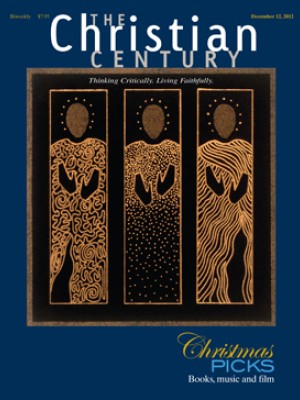History & current events
Sword of the Spirit, Shield of Faith: Religion in America War and Diplomacy, by Andrew Preston. As this year’s presidential debate on foreign policy indicated, partisan differences often fade decidedly at the water’s edge. American political elites are consensually wedded to a firm conviction that the United States—“exceptional” and “chosen” as it is—remains the “indispensable nation” for international well-being. A conviction as old or older than the republic itself, it has long been infused by religious belief. Preston gives a splendid history of the role of this potent mix of faith and power in shaping America’s role in the world. Treating religious sentiment as more than rhetorical window dressing, Preston makes the case for its causal force, not only in the extension of American global hegemony but in domestic opposition to it.
Embers of War: The Fall of an Empire and the Making of America’s Vietnam, by Fredrick Logevall. Hopes for shattering the exceptionalist imperial ambitions of the United States once rested on the “Vietnam syndrome,” which has now lost whatever potency it might have had. While we await what will, in all likelihood, be an equally short-lived “Iraq/Afghanistan syndrome,” we may be grateful to historians such as Logevall for reminding us of the origins and consequences of the earlier disaster. His huge and hugely rewarding book scrutinizes the last years of French rule in Indochina and the fateful American decision to assume the burden of curbing Ho Chi Minh’s struggle for independence. Not least of Logevall’s achievements is a tarnishing of Dwight Eisenhower’s halo as a reluctant warrior in Southeast Asia.
Read our latest issue or browse back issues.
Rethinking Anti-Americanism: The History of an Exceptional Concept in American Foreign Relations, by Max Paul Friedman. The flip side of the conviction, often religiously inflected, that an exceptional America has a mission to the rest of the world is a puzzlement, often religiously inflected, over the failure of the rest of the world to appreciate the effort. Friedman, working in five languages across nine countries, explores the indispensable but utterly misleading concept of anti-Americanism. He, like Logevall and perhaps even Preston, will, of course, be charged with anti-Americanism.
End This Depression Now! by Paul Krugman. As the instant histories of the first term of Obama’s presidency have established, one of the pivotal decisions he made upon entering office was to employ a panel of economic advisers friendly to and often cozy with finance capital. Partly as a result, Wall Street is now doing just fine, while on Main Street many are still struggling to stay afloat. Readers dismayed by this turn of events have found refuge in Nobel laureate Krugman’s column in the New York Times. His book sums up the neo-Keynesian advice he would have given Obama, had he been asked, and charts a way out of our ongoing disaster—one that many on Main Street and few on Wall Street or in Washington will find palatable. If budget deficits, tax increases and inflation are what keeps you awake at night, you will hate this book. But if unemployment, weak consumer demand and corporate welfare compose your nightmare, Krugman is the economist for you, if not for the politicians for whom you vote.
The Price of Inequality: How Today’s Divided Society Endangers Our Future, by Joseph E. Stiglitz, and The Great Divergence: America’s Growing Inequality Crisis and What We Can Do About It, by Timothy Noah. The presidential candidates tiptoed around arguably the single most significant and politically challenging domestic issue confronting the United States: economic inequality—inequality that the financial crisis of 2008 has only served to enhance. Stiglitz, another contrarian Nobel laureate absent from Obama’s councils of state, makes a powerful case for the damaging consequences of inequality (much of it the product not of free markets but of markets politically managed on behalf of the wealthiest Americans), not only for those less favored by fate or fortune but for the health of American social, economic and political life as a whole. Noah’s primer is the place to begin a confrontation with this issue, before moving on to Stiglitz’s more erudite account of the “rent-seekers” who rule the United States.
American Nietzsche: A History of an Icon and His Ideas, by Jennifer Ratner-Rosenhagen. One of the salutary developments in the writing of American history is an effort to place that history in a transnational frame. Among the consequences is a growing interest in the transplantation of European ideas to American shores. Ratner-Rosenhagen has set a gold standard for such work in her remarkable study of the many (sometimes contradictory) “Nietzsches” that have found a central place in American intellectual and cultural life since the turn of the 20th century. She lays bare the often surprising ways in which this antidemocratic Anti-christ found a capacious home on what were, on the face of it, forbidding shores.
1493: Uncovering the New World Columbus Created, by Charles C. Mann, and Destiny of the Republic: A Tale of Madness, Medicine and the Murder of a President, by Candice Millard. Another sign of health in the history business in America is the remarkable wealth of first-rate books turned out by nonacademic historians (no, this doesn’t include Bill O’Reilly). Mann and Millard are two of the best. Mann has followed 1491, his eye-opening study of the pre-Columbian Western Hemisphere, with 1493, an expansive exploration of the far-reaching consequences of post-Columbian ecological and economic exchange. Presidential biography is, of course, a staple of popular history, but Millard has demonstrated that even this hoary form can find new life. She follows River of Doubt, her telling portrait of Theodore Roosevelt via a narrative of his near-disastrous postpresidential trip down the Amazon, with a compulsively readable account of the assassination and lingering death of James Garfield. Millard turns her considerable talent for evoking gruesome matters from jungle fevers to the crude medical practices of the doctors who tortured Garfield for weeks before he finally succumbed.















